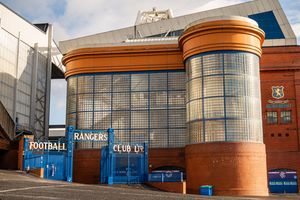CMA provisionally finds illegal price-fixing of Rangers FC merchandise
The CMA has provisionally found that Elite Sports, JD Sports and Rangers Football Club broke competition law by fixing the retail prices of certain Rangers-branded clothing products.

If confirmed, the companies involved can expect to face fines.
The provisional findings are:
- Elite Sports and JD Sports fixed the retail prices of a number of Rangers-branded replica kits and other clothing products from September 2018 until at least July 2019.
- Rangers FC also took part in the alleged collusion but only to the extent of fixing the retail price of adult home short-sleeved replica shirts from September 2018 to at least mid-November 2018. All 3 parties allegedly colluded to stop JD Sports undercutting the retail price of the shirt on Elite’s Gers Online store.
At the time, Elite was the manufacturer of Rangers-branded clothing and also sold Rangers-branded products directly through Gers Online Store and later in bricks-and-mortar shops in Glasgow and Belfast. The only UK-wide major retailer selling those products at the time was JD Sports.
The Competition and Markets Authority (CMA) alleges that Rangers FC became concerned about the fact that, at the start of the 2018-19 football season, JD Sports was selling the Rangers replica top at a lower price than Elite, which was seen at the time as the club’s ‘retail partner’. This resulted in an understanding between the 3 parties that JD Sports would increase its retail price of the Rangers adult short-sleeved home replica shirt by nearly 10%, from £55 to £60, to bring it in line with the prices being charged by Elite on Gers Online.
The CMA is also concerned that Elite and JD Sports – without involvement from Rangers –colluded to fix the retail prices of Rangers-branded clothing, including training wear and replica kit, over a longer period. This included aligning the level and timing of discounts towards the end of the football season in 2019, to avoid competition between them and protect their profit margins at the expense of fans.
Elite and JD Sports applied for leniency during the CMA’s investigation and confessed to cartel activity. Provided they continue to cooperate with the investigation, each will receive a reduction on any financial penalties the CMA may decide to impose. Any business found to have infringed the prohibitions in the Competition Act 1998 can be fined up to 10% of its annual worldwide group turnover.
Michael Grenfell, Executive Director of Enforcement at the CMA, said:
We don’t hesitate to take action when we have concerns that companies may be working together to keep costs up.
Football fans are well-known for their loyalty towards their teams. We are concerned that, in this case, Elite, JD Sports and, to some extent, Rangers, may have colluded to keep prices high, so that the 2 retailers could pocket more money for themselves at the expense of fans.
These are the CMA’s provisional findings and the companies involved now have the chance to make representations to the CMA before it reaches a final decision.
More information can be found on the case page: Suspected anti-competitive behaviour in relation to the pricing of Rangers FC-branded replica football kit.
Notes to editors:
-
For media enquiries, contact the CMA press office on 020 3738 6460 or press@cma.gov.uk.
-
The Chapter I prohibition in the Competition Act 1998 prohibits agreements and concerted practices between businesses which have as their object or effect the prevention, restriction or distortion of competition within the UK.
-
The statement of objections is addressed to the following parties: Elite Sports Group Limited and its parent company Elite Corporation Limited; JD Sports Fashion Plc; and The Rangers Football Club Limited and its parent company Rangers International Football Club Plc.
-
A statement of objections gives parties notice of a proposed infringement decision under the Competition Act 1998. It is a provisional decision only and does not necessarily lead to an infringement decision. Parties have the opportunity to make written and oral representations on the matters set out in the statement of objections. Any such representations will be considered by the CMA before a final decision is made. The final decision will be taken by a case decision group, which is separate from the investigation team and was not involved in the decision to issue the statement of objections.
-
The statement of objections will not be published. However, any person who in the CMA’s view is directly and materially affected by the outcome of the CMA’s investigation and is likely materially to assist the CMA in its investigation may request a non-confidential version of the statement of objections by contacting the CMA.
-
Under the CMA’s leniency policy, a business that has been involved in a cartel may be granted immunity from penalties or a significant reduction in penalty in return for reporting cartel activity and assisting the CMA with its investigation. Individuals involved in cartel activity may also in certain defined circumstances be granted immunity from criminal prosecution for the cartel offence under the Enterprise Act 2002 and from competition disqualification proceedings. The CMA also operates a rewards policy under which it may pay a financial reward of up to £100,000 in return for information which helps it to identify and take action against cartels. For more information on the CMA’s leniency and informant reward policies, go to leniency and rewards.
-
Anyone who has information about a cartel is encouraged to call the CMA cartels hotline on 020 3738 6888 or email cartelshotline@cma.gov.uk.